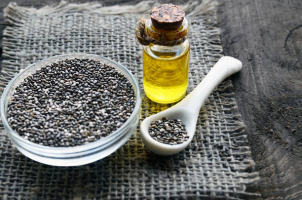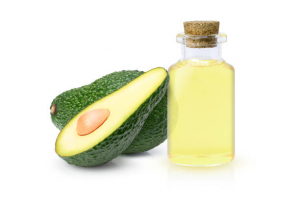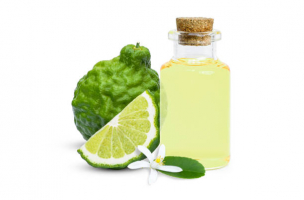Top 8 Health Benefits of Cod Liver Oil
One kind of fish oil supplement is cod liver oil. Like conventional fish oil, it contains a lot of omega-3 fatty acids, which have been linked to several ... read more...health advantages, including lowered blood pressure and decreased inflammation. It also has vitamins A and D, both of which have several additional health advantages. Here are the most scientifically supported benefits of cod liver oil.
-
The liver of Atlantic cod is where the majority of cod liver oil is found. Cod liver oil has been used for generations to cure rickets, a condition that produces brittle bones in youngsters, and to improve joint discomfort. Despite being a fish oil supplement, cod liver oil is very different from ordinary fish oil. Cod liver oil is produced from the livers of cod, whereas regular fish oil is taken from the tissue of oily fish such as tuna, herring, anchovies, and mackerel. The liver has a remarkable nutritional profile due to its abundance of fat-soluble vitamins including vitamins A and D. One teaspoon (5 ml) of cod liver oil provides the following:
- Calories: 40
- Fat: 4.5 grams
- Omega-3 fatty acids: 890 mg
- Monounsaturated fat: 2.1 grams
- Saturated fat: 1 gram
- Polyunsaturated fat: 1 gram
- Vitamin A: 90% of the RDI
- Vitamin D: 113% of the RDI
One teaspoon of cod liver oil provides 90% of your daily needs for vitamin A and 113% of your daily needs for vitamin D, making it exceptionally nutrient-dense. The maintenance of healthy skin, eyes, and brain function are just a few of vitamin A's many functions in the body. One of the finest nutritional sources of vitamin D, which is essential for keeping strong bones by controlling calcium absorption, is cod liver oil.

High in Vitamins A and D 
High in Vitamins A and D -
The body uses inflammation as a natural defense mechanism and as a healing process for wounds. Unfortunately, inflammation sometimes lasts for a very long time at a low level. Chronic inflammation, as it is termed, is hazardous and raises the risk of high blood pressure and a number of illnesses, including heart disease. By inhibiting the proteins that encourage chronic inflammation, the omega 3-fatty acids in cod liver oil may lessen it.
Additionally, cod liver oil has antioxidant-rich vitamins A and D. Through the binding and neutralization of damaging free radicals, they can alleviate inflammation. It's interesting to note that research has also linked chronic inflammation to vitamin A and D deficiencies.

May Reduce Inflammation 
May Reduce Inflammation -
As you age, it's crucial to keep your bones healthy. This is because, beyond the age of 30, you begin to lose bone mass. Fractures may result later in life from this, particularly in women after menopause. A strong dietary source of vitamin D, cod liver oil may slow the loss of bone mass with age. That's because it facilitates your body's digestion of calcium, a mineral essential for healthy bones.
In fact, studies suggest that taking a vitamin D supplement, such as cod liver oil, helps prevent bone loss in adults and improves brittle bones in youngsters when combined with a diet rich in calcium. People who live far from the equator should take extra care to acquire adequate vitamin D since their skin doesn't receive enough sunshine for up to six months of the year to produce vitamin D in this way.

May Improve Bone Health 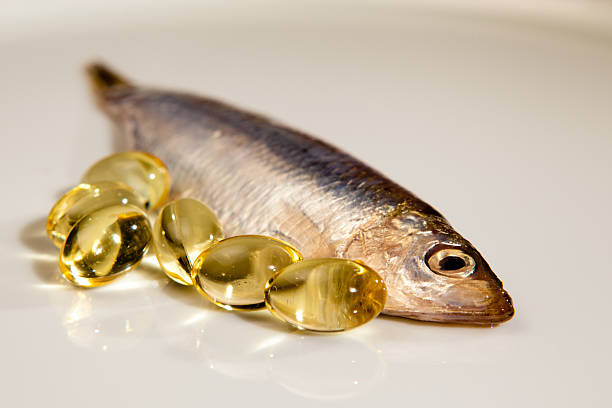
May Improve Bone Health -
An autoimmune condition known as rheumatoid arthritis is characterized by joint destruction. Rheumatoid arthritis does not presently have a known cure, however, studies indicate that cod liver oil may lessen joint discomfort and improve signs of the disease such as joint stiffness and swelling. 43 participants in one trial consumed one gram of cod liver oil every day for three months.
They discovered that it reduced rheumatoid arthritis symptoms such as morning stiffness, discomfort, and edema. Another trial including 58 participants looked at whether eating cod liver oil will lessen rheumatoid arthritis discomfort sufficiently to allow patients to stop taking anti-inflammatory drugs. By the end of the research, 39% of participants who used cod liver oil had successfully decreased their intake of anti-inflammatory drugs by more than 30%. It is thought that the omega-3 fatty acids in cod liver oil may aid in reducing joint inflammation and defending against harm.

May Reduce Joint Pain 
May Reduce Joint Pain -
Over 285 million people worldwide are affected by vision loss, which is a serious health issue. There are several causes of vision loss, but glaucoma and age-related macular degeneration are two of the more common ones (AMD). These two illnesses may develop as a result of persistent inflammation. However, it has been demonstrated that the omega-3 fatty acids and vitamin A included in cod liver oil can guard against inflammatory eye illnesses. Omega-3 fatty acids have been shown in studies on animals to lower glaucoma risk factors such as ocular pressure and nerve damage.
Researchers discovered that individuals who consumed the most omega-3 fatty acids had a 17% reduced chance of developing early AMD and a 41% lower risk of developing late AMD in a trial including 666 persons. In addition, compared to diets low in vitamin A, diets high in vitamin A may minimize the incidence of AMD and glaucoma. Researchers observed in one study of 3,502 adults aged 55 and over that those who drank the most vitamin A had a much-reduced chance of developing glaucoma than those who consumed the least. Although vitamin A is excellent for eye health, taking large amounts of it is not advised since it may result in vitamin A toxicity.

May Support Eye Health 
May Support Eye Health -
Over 17.5 million people are affected by heart disease each year, making it the leading cause of mortality globally. According to studies, those who frequently consume fish have a much-decreased chance of developing heart disease. Its omega-3 fatty acid concentration is responsible for this action. Cod liver oil's omega-3 fatty acids have been shown to lower blood triglycerides by 15% to 30%. Omega-3 fatty acids may reduce blood pressure, particularly in those with high blood pressure and high cholesterol, according to research. The excellent HDL cholesterol that is raised by omega-3 fatty acids in cod liver oil is associated with a decreased risk of heart disease. According to research done on animals, cod liver oil may lower the likelihood that arteries would develop plaque. An artery blockage or plaque accumulation can cause a heart attack or stroke.
There is no proof that taking fish oil supplements, such as cod liver oil, will prevent heart disease or strokes, even if they may lower risk factors for developing them. Since cod liver oil is frequently categorized as conventional fish oil in research, very few have explicitly looked at the relationship between cod liver oil and heart disease. To establish a definite connection between cod liver oil and heart disease risk factors, further study is required.

May Reduce Heart Disease Risk 
May Reduce Heart Disease Risk -
Depression and anxiety are both widespread disorders that collectively affect more than 615 million people globally. Interesting research indicates that anxiety and sadness may be linked to chronic inflammation. Numerous studies have revealed that the omega-3 fatty acids in cod liver oil help lessen anxiety and depressive symptoms as well as inflammation. Significant research including 21,835 persons discovered that frequent users of cod liver oil experienced reduced symptoms of sadness or symptoms of both despair and anxiety. Omega-3 fatty acids do, however, aid in the reduction of anxiety and depressive symptoms, but their total impact appears to be minimal.
Omega-3 supplements were just marginally more helpful than placebos at reducing symptoms of anxiety and sadness, according to a review of 26 research involving 1,478 people. Furthermore, a number of studies have discovered a connection between elevated vitamin D levels in the blood and a decline in depressive symptoms. Although the exact mechanism by which vitamin D lessens depressive symptoms is still unknown, some studies indicate that it may bind to receptors in the brain and trigger the production of chemicals that enhance mood, such as serotonin.
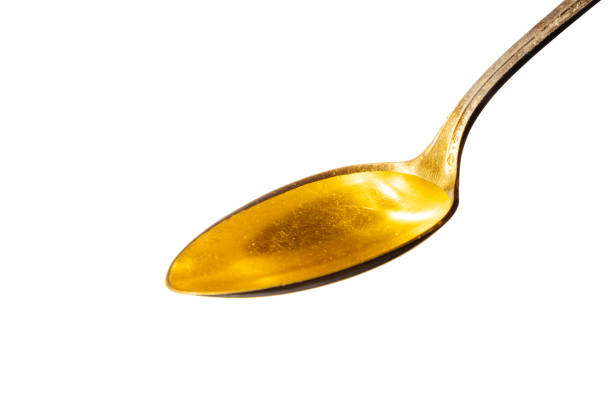
May Improve Symptoms of Anxiety and Depression 
May Improve Symptoms of Anxiety and Depression -
Small tears in the stomach or intestinal walls are called ulcers. They could result in uncomfortable and nauseating upper abdominal symptoms. They are frequently brought on by bacterial infections, smoking, excessive use of anti-inflammatory drugs, or an excess of stomach acid. According to animal research, cod liver oil may be useful in treating ulcers, particularly those of the stomach and intestine.
Cod liver oil, at both low and high dosages, was found to be effective in treating stomach and intestinal ulcers in one animal study. Cod liver oil lowered genes associated with gastrointestinal inflammation, decreased gut inflammation, and prevented intestinal ulceration, according to different animal research. While the use of cod liver oil to treat ulcers appears promising, additional research on people is required before any firm recommendations can be made.

May Help Heal Stomach and Gut Ulcers 
May Help Heal Stomach and Gut Ulcers












